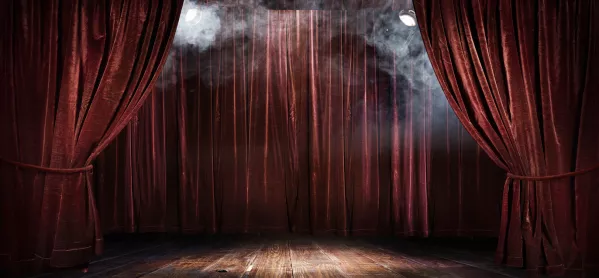In May, I wrote a piece explaining how I felt about the new GCSEs in English and mathematics. The changes, although arguably necessary, were rushed in so quickly that I feared we didn’t have enough time to prepare students.
At that time, the iceberg was ahead of us, but did we have enough time to steer our departments away from it? Did the GCSE system collapse because of these rushed-in changes? Did the education system halt because of the new numbering system? Did an increased level of challenge make students revolt in their thousands and tear their result papers up?
No. None of these things happened.
Why did none of these things happen? Because teachers, parents and students want to do their best and they want things to succeed.
GCSE results day 2017
We will not idly stand by and watch failure. Teachers are dutiful and compliant. We worked tirelessly hard to make sure this year’s intake of students did not suffer.
Like a pantomime, the teachers are holding up the wobbly scenery, while the politicians and exam boards stand postulating in front of the audience.
Politicians will be praising how good the changes have been, yet the teachers are hidden from sight, picking up the pieces and putting out fires.
Predictions and protestations
Our results are interesting. Interesting because I have nothing to compare against. Nothing historically. Nothing nationally. Nothing regionally. We know what is really good. We know what is really bad. But we don’t know how it compares and links together.
As heads of departments, our predictions on the percentage for a grade 4 might be proven to be wrong, right or close. But, there will be a lot of head-scratching and procrastination this term. We will not know the full picture of what happened until we see the full national picture.
This all makes the quick-fire analysis of the exam hard, because, in truth, this is the starting point and not a stepping stone: you can’t look back. This is the beginning of the new GCSEs and that’s why this is so hard: it is new.
So what are our first impressions?
Our English language results have improved, if we are using 4 as a C comparison with previous years.
Our literature results have dipped. Historically, our students have always performed better in literature than language, so it seems a rebalance of the two GCSEs.
Our boys have improved. This is no surprise given that the appearance and disappearance of coursework over time coincides with improvements in gender performance.
Our predictions were not 100 per cent accurate. Not a surprise.
Also, we have some 9s in literature and language, which we were led to believe are like unicorns: highly unlikely.
But how it all relates to the whole picture is unclear. Time will tell.
This year’s cohort ‘treated disrespectfully’
Departments are now going to design, build and paint the sets. Or, redesign, rebuild or repaint the wobbly sets. They are going to be pulling things together and making things better and working hard to improve. They will be working through examiners’ reports, analysing papers and changing materials to get better. Teachers hold things together.
We like to think the end justifies the means. This mantra is one that is used often in business.
It may work for businesses, yet it doesn’t successfully work for education. We work with young people, the sons and daughters of parents, and they deserve a bit more respect and care than rushed-in ideas and changes.
Politicians take heed: every student in education is a future voter and every parent is an existing voter. This year’s cohort has not been treated considerately or respectfully with the new changes. Two years was never enough time to introduce these changes when five years of education in secondary school and seven in primary school is spent getting them ready for it - and their future.
With a general election likely to take place every five years, you can see that, as teachers, we never get a fair deal at working on and embedding changes and improvements when every five years or less we get somebody with some new idea or new job in education.
Let’s keep things as they are for the next 20 years. Over time you’ll see the improvements, when you give things time.
Chris Curtis is a head of English at a secondary school in Derbyshire and he tweets @Xris32
Keep up to date with all the latest GCSE news, views and analysis on our GCSE hub.
Want to keep up with the latest education news and opinion? Follow Tes on Twitter and like Tes on Facebook


